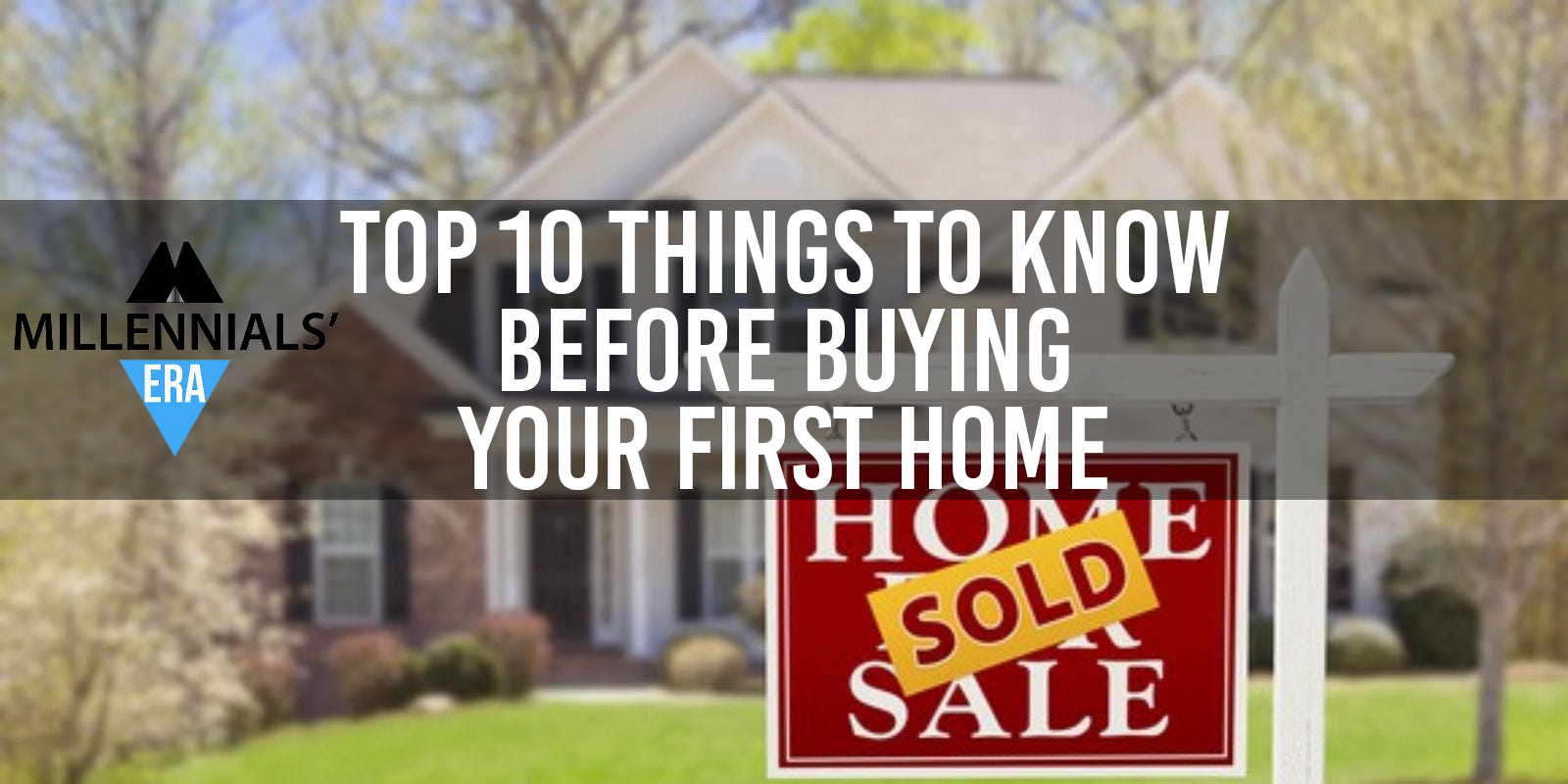
Photo by Tierra Mallorca on Unsplash
Millennials today are emerging into the next biggest generation of home buyers. However, with the amount of reported student loan debt and perceived perils of buying a home in today’s market, they are more hesitant than their predecessors to take the leap into home ownership. This article will have two entries, so here is part one of the top ten things to consider before buying your first home:
Photo by Sandy Millar on Unsplash
1. How much should I save to buy my first home?
Contrary to popular belief, you don’t have to have 20% in savings to buy your first home. Both conventional and FHA loans require much less than that at the closing table; 5% of the sales price for Conventional and 3.5% for FHA. Qualifying for either of these loans is based on your debt-to-income ratio (basically how much you bring in versus how much you spend on bills per month), which a mortgage lender will review with you before giving a pre-approval for a home. The benefit to having 20% down is that you avoid having to pay PMI (private mortgage insurance) per month along with your mortgage payment.
The benefit to having 20% down is that you avoid having to pay private mortgage insurance per month along with your mortgage payment.
Photo by Clem Onojeghuo on Unsplash
2. What happens if I lose my job before closing?
Many first time buyers who have worked with lenders are surprised with the amount of paperwork they are asked to fill out. Applying for a loan can be a time-consuming process, but that’s not the end of the journey. In addition to reviewing W2 statements and previous pay stubs, lenders will do a verification of employment at the beginning of the process to verify that you are financially capable of paying back the loan. They will also do one once the loan is in underwriting right before we get the clear to close on the property. If you lose your job before this final verification of employment the lender will not be able to approve your loan, and you will not be able to close on the property.
Photo by Evgeni Tcherkasski on Unsplash
3. What should I expect from a home inspection?
A big part of buying a home is inspecting it to know what you’re actually buying. Home inspections usually take place during the option period and can cost anywhere between $400 to $550 depending on how big the property is and if there is a pool located in the backyard. Inspections usually take 2 to 3 hours and in that time, the inspector will visit all accessible areas of the home, take pictures, and highlight areas of concern in the report. If you attend the last 15 to 20 minutes of the inspection, that’s usually sufficient for the inspector to share any areas of concern with you. Also, you will get an electronic copy of the report to review and to use in negotiating repairs with the seller of the home.
Photo by Vladislav Babienko on Unsplash
4. How does the option period work?
The option period is one of your most valuable opportunities to decide if you want to move forward with a home purchase. After the contract is executed (meaning when both parties have signed), the following calendar day is when your option period starts. Typically this time frame can last between 7 to 10 calendar days depending on how long you need to inspect the home and get any questions answered before moving forward. The first thing to do is get your earnest money sent to the title company and your option fee delivered to the listing broker to be delivered to the seller. If you back out during the option period, the seller keeps this fee. But if you close on the home, it is credited back to you as payment towards your closing costs. Typical option fees can range from $150 to $200, but some sellers will request that you pay a certain amount per day. Once inspections are completed and repairs have been agreed upon, the status on the MLS (Multiple Listing Service) will change from OP (Option Pending) to P (Pending) to signify that you are one step closer to closing on the home.
If you back out during the option period, the seller keeps your option fee. But if you close on the home, it is credited back to you as payment towards your closing costs.
Photo by Ryan Born on Unsplash
5. What credit score do I need to buy a home?
According to Dave Ramsey, your credit score is your “I love debt!” score because it’s determined by your overall interaction with debt and how you manage your debt. So that includes student loans, credit cards, monthly bills, etc. A great way to determine if you’re ready to buy a home is by reviewing this score before you speak with a lender. Most homeowners who are applying for an FHA loan, or a government-backed loan, should expect to have at least a 580 credit score to qualify for a mortgage loan. Of course there are other factors to help you qualify, like your debt to income ratio, but this is where you should start. Those with a credit score of 620 and above may qualify for a conventional loan. This requires more money down but benefits you in the long run, because it allows the PMI (Private Mortgage Insurance) to fall off of your loan if you put down 20% of the total amount or if your home gains 20% of value in equity.
Most homeowners who are applying for an FHA loan, or a government-backed loan, should expect to have at least a 580 credit score to qualify for a mortgage loan.









